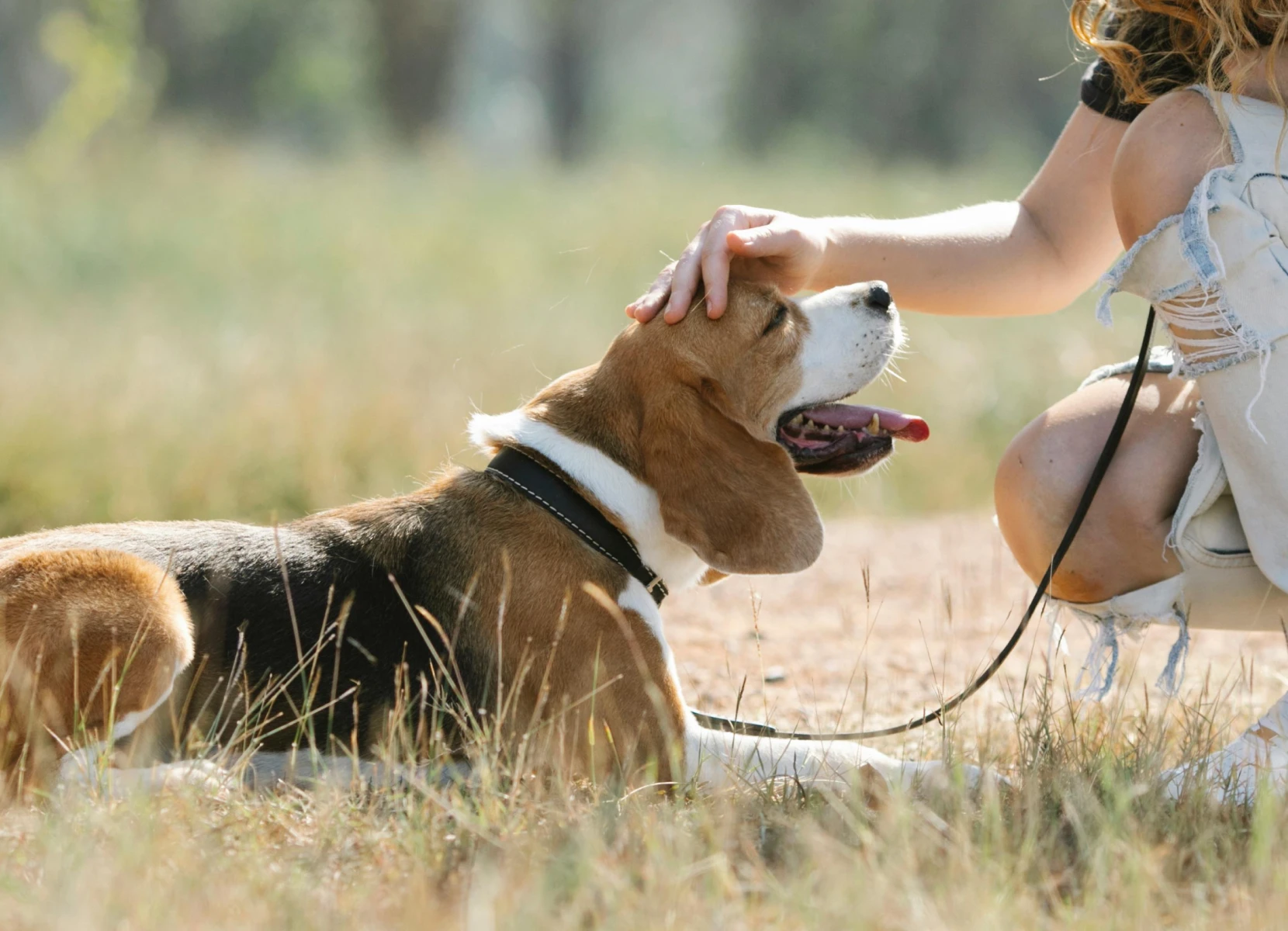Dog Breed
Beagle
Freindliness
Exercise Needs
Health Issues
Barking Tendencies
Grooming Needs
Shedding Level


Bubbly bestie
Famed for being fantastic family pets, Beagles are generally easygoing pups who absolutely love the company of their pack, whether that’s their human family or other dogs. Loving and happy, these curious, clever and energetic hounds thrive on attention and plenty of activity.
In return for the cutest of companions, know that life with a Beagle will never be dull: they need daily exercise, company and physical and mental stimulation, plus plenty of training to ensure you have a happy and healthy Beagle.
Caring for your Beagle
Nutrition
Choosing the right food
Every dog is unique. From the small, flat-faced Pug to the obesity-prone Labrador Retriever. ROYAL CANIN® Breed Health Nutrition is tailor-made to address the unique needs of pure breed dogs. These breed specific formulas benefit from the latest ROYAL CANIN® research on the selection of the best protein sources, unique nutrients and tailor-made kibbles.

Exercising your dog
Beagles need at least 1 hour of exercise every day - they’re active, energetic dogs. A play in the garden by themselves won’t cut it.
They’re pack dogs and happiest when they’re exercising with you or other dogs. Beagles are known for being escape artists - they’re jumpers, climbers, diggers and tunnellers. This means their exercise area should have a fence that’s at least 1.5m high which extends underground.
Beagles enjoy a good walk but make sure they’re always on-lead. As a scenthound, Beagles can find certain scents irresistible and will happily run off in pursuit.

Training your Beagle
Bred to be pack hunting dogs with one focus (find the creature with that scent!) and now expected to be well-behaved household members, Beagles have earned a reputation as difficult to train.
Beagles can be distracted by every single smell they come across but they’re intelligent. This makes them trainable, especially if training involves positive reinforcement and plenty of treats.
Focus on the basics with a Beagle, especially their recall. Walking nicely on a lead is essential too. Beagles can be taught when it’s time to sniff and when it’s time to walk.
Early socialisation and training will help your Beagle become a well-mannered pup.

Your dog's health
By recognising health problems in a Beagle early you can seek advice and treatment from a veterinarian.
Reduce Beagle health problems by purchasing a puppy from a responsible breeder. Always inspect breeding facilities and breeding dogs, and never buy from a distant online seller.
Health Issues to watch out for:
Dental Disease
Eye Problems
Joint and Spinal Issues
Epilepsy

Grooming your dog
Beagles have a dense, smooth coat that sheds seasonally. During this time you’ll need to remove the loose hair with a deshedding tool every few days or even daily. Otherwise a weekly brush will keep their coat in order.
Because Beagles don’t smell that much, they don’t need a bath very often - usually just when they’ve played in the mud or got into something mucky. Their long, floppy ears should be cleaned monthly to remove any dirt build-up.
Give their nails a clip or trim every 1 to 2 months to keep them comfortable. Finally, brush their teeth every day to avoid developing dental disease, which can be painful and expensive to fix.
Key characteristics of Beagles


Beagle FAQs
Beagles are curious, energetic, and full of personality. But there’s more to this popular hound than meets the eye. Below are some of the most common questions prospective owners ask that aren’t always covered in standard breed guides, from coat colours to feeding tips.
Are Beagles good with children and other pets?
Yes, Beagles are known for their friendly and tolerant nature. They generally do very well with children and other dogs, especially when raised together. Their pack-dog history makes them sociable companions.
Can Beagles be left alone during the day?
Beagles can become anxious or destructive if left alone for long periods. They thrive on company and mental stimulation, so it helps to leave interactive toys, or consider doggy daycare if you're regularly away.
Do Beagles bark a lot?
Yes, Beagles are vocal dogs. Originally bred to alert during hunts, they may bark, bay, or howl when bored, excited, or left alone. Training and mental stimulation can help manage excessive barking.
How much do Beagles eat per day?
Adult Beagles generally need between ¾ to 2 cups of high-quality food daily, depending on their size, age, and activity level. Portion control is essential to prevent obesity, a common issue in this breed.
Are Beagles good watchdogs?
Beagles are alert and quick to vocalise, making them decent watchdogs. While they are unlikely to be aggressive, they will let you know when someone is at the door or if something feels off.
These FAQs help paint a fuller picture of what it's like to live with a Beagle. From their voice to their appetite, this breed brings a lively presence into any home. With the right care and a good routine, Beagles make loyal, loving companions packed with charm and curiosity.



